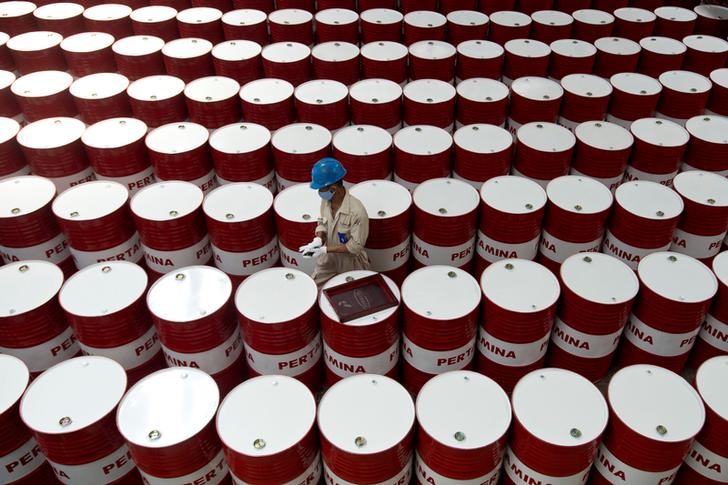Investing.com — Oil prices edged higher on Thursday after paring intraday losses as stronger U.S. economic data helped improve sentiment on crude demand just as Chinese oil imports fell.
At 2:30 PM ET (18:30 GMT), the September maturity rose 0.7% to $82.11 per barrel, while the price rose 0.5% to $82.11 per barrel.
US GDP and PCE inflation in the spotlight
US data showed the country’s economy grew at an annual rate of 2.8% in the second quarter, an improvement from the 1.4% growth in the first quarter, and above expectations for 2%.
The signs of continued economic momentum come ahead of next week, where the central bank is widely expected to leave interest rates unchanged.
However, expectations are growing that the Fed can signal that an interest rate cut is in the offing in September.
The economic strength suggests that domestic oil demand is likely to remain intact at a time when Chinese demand is weakening.
The increase in seasonal demand in the US was somewhat reflected in weekly crude oil inventories data released on Wednesday, which showed a draw in US crude inventories.
Still, “it appears speculators continue to drive bearish oil markets into the quarter (barring a weather or supply shock),” Citi said in a recent note.
Chinese demand remains a concern
Chinese demand continued to play a role after the world’s largest oil importer reported disappointing second-quarter growth figures. Chinese oil imports also fell in June.
The data, combined with little signals of more stimulus from Beijing, largely kept sentiment on China subdued.
An unexpected interest rate cut by the People’s Bank did little to improve sentiment.
Uncertainty over the U.S. presidential race has also hit sentiment toward China, amid doubts about what exactly a change in the U.S. administration will mean for Washington’s stance toward Beijing.
Moreover, data from Europe showed businesses in the eurozone’s two largest economies are growing more pessimistic, raising concerns about the bloc’s already slow recovery.
The business environment in France and Germany unexpectedly deteriorated in July and entrepreneurs looked more gloomily to the coming months, national polls showed, a day after a separate survey pointed to stagnant growth in the eurozone.
(Peter Nurse, Ambar Warrick contributed to this article.)


